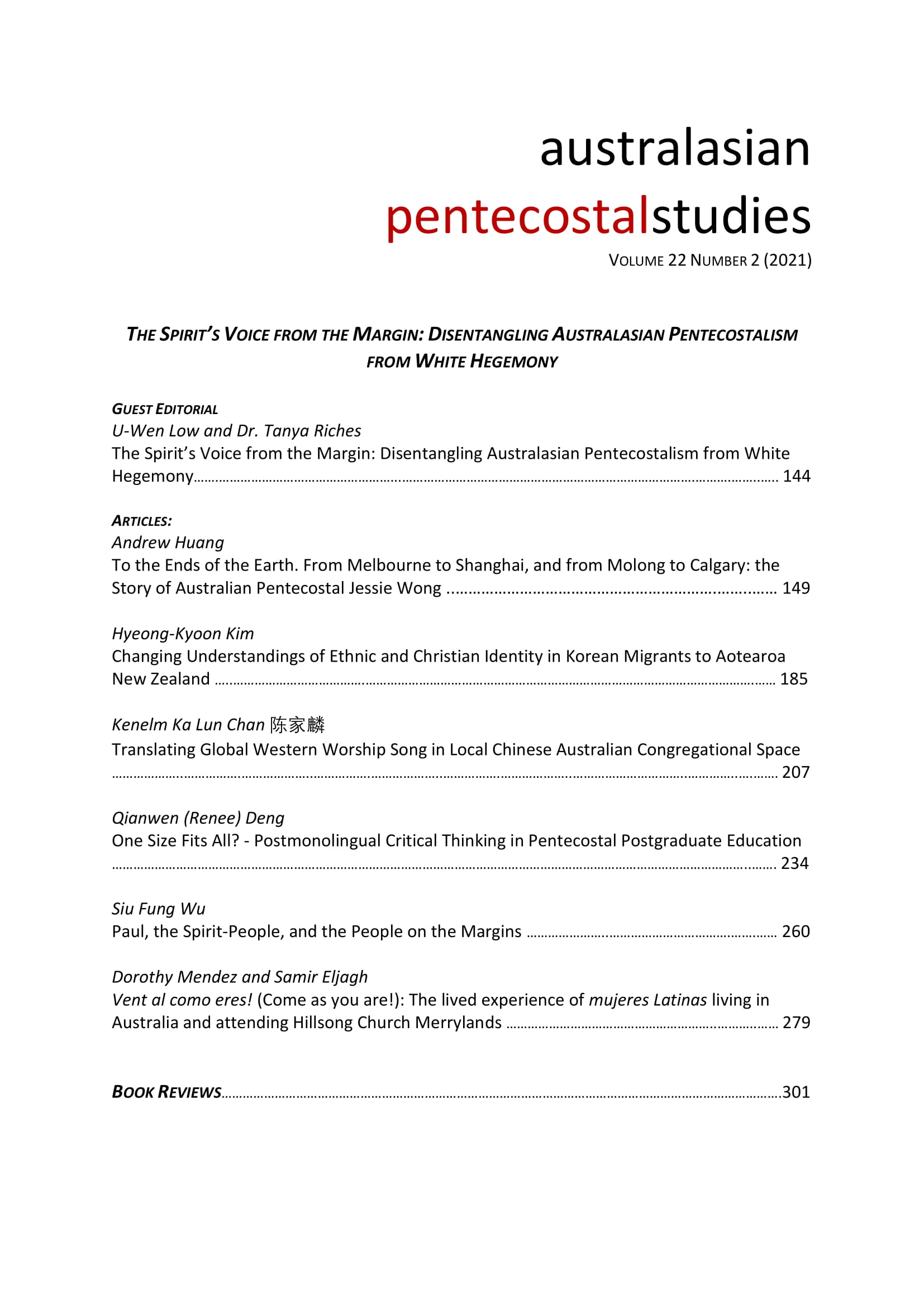One Size Fits All? – Postmonolingual Critical Thinking in Pentecostal Postgraduate Education
Abstract
The critical thinking required in Australian postgraduate education demonstrates an English-monolingual bias, which derives from Australian universities’ assumed English linguistic dominance and Western-centric academic culture. Therefore, Pentecostal theological educators need to examine the epistemological assumptions that underpin the broader Australian education system when undertaking Higher Education. This article offers postmonolingual critical thinking as an alternative pedagogical method for Australian Pentecostal theological postsecondary education and beyond. This article argues that postmonolingual critical thinking provides a possible response to Pentecostalism’s “anti-intellectual” debate and creates a Pentecostal identity within Australian postgraduate education. It is argued that Pentecostal education may facilitate learners’ transformation and move away from Western-centric knowledge-production where English-monolingual critical thinking is an a priori justification. By examining the critical thinking practices of seven multilingual Pentecostal postgraduate students through a postmonolingual lens, this article explores how these critical thinkers access their full language repertoire to exercise a socio-relationally-informed, communally-oriented postmonolingual critical thinking. The potential impact of this dialectically progressive framework of critical thinking on Pentecostal education is also examined.
Downloads
Published
How to Cite
Issue
Section
License
Authors who publish with this journal agree to the following terms:
- Authors retain copyright and grant the journal right of first publication with the work simultaneously licensed under a Creative Commons Attribution License that allows others to share the work with an acknowledgement of the work's authorship and initial publication in this journal
- Authors are able to enter into separate, additional contractual arrangements for the non-exclusive distribution of the journal's published version of the work (e.g., post it to an institutional repository or publish it in a book), with an acknowledgement of its initial publication in this journal.
- Authors are permitted and encouraged to post their work online (e.g., in institutional repositories or on their website) prior to and during the submission process, as it can lead to productive exchanges, as well as earlier and greater citation of published work (See The Effect of Open Access).


